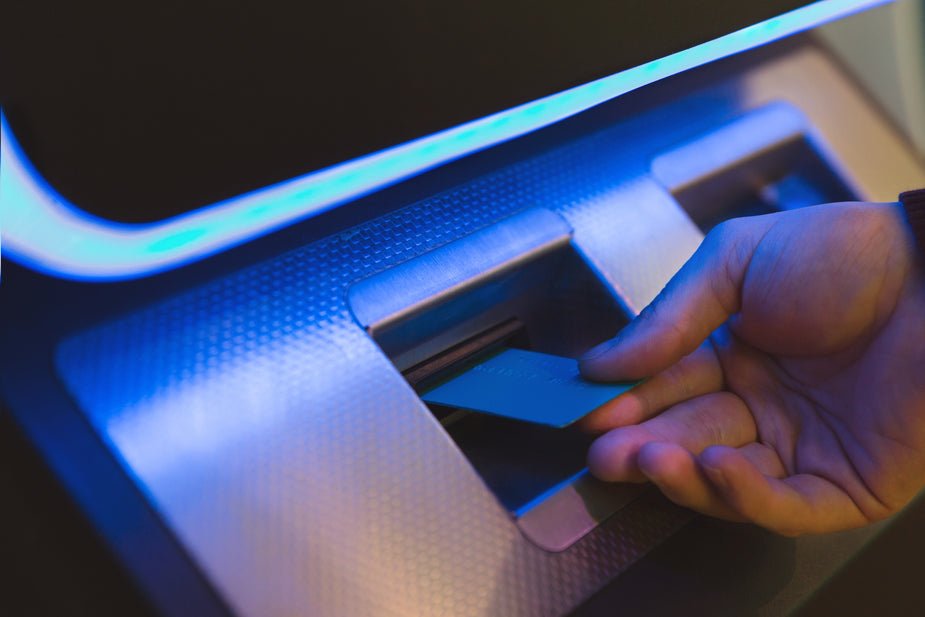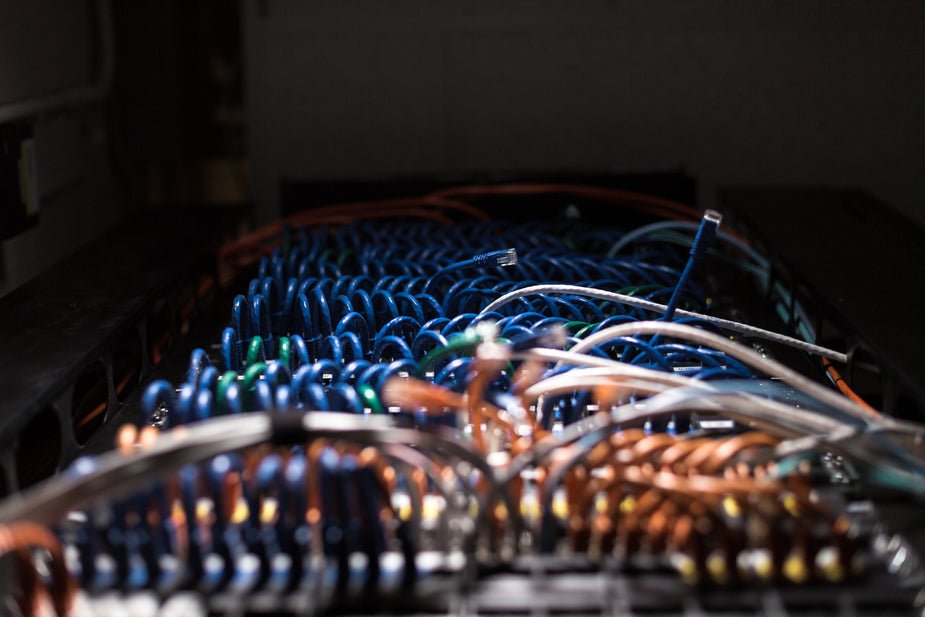Smart contracts in Blockchain. Use cases
What is smart contracts in the blockchain?
A smart contract is a computer protocol that allows two parties to interact in a mutually agreed-upon way. The contract terms are written into code and stored on the blockchain, meaning they can be executed automatically and without the need for third-party input or approval. This makes smart contracts much more efficient than traditional contracts, which often involve manual processing and can be subject to fraud or human error.
Smart contracts can automate different kinds of transactions, including financial transactions, supply chain management, and more.
One of the significant advantages of smart contracts is that they are tamper-proof; once deployed onto the blockchain, they cannot be modified or deleted. This ensures that both parties will uphold their end of the bargain, as any attempt to change the contract would be visible to everyone on the network.
Nick Szabo first proposed smart contracts. He is also credited with creating the concept of digital assets and decentralized autonomous organizations (DAOs). He envisaged smart contracts as a way to digitally facilitate, verify, or enforce the negotiation or performance of the contract. This would potentially enable mutually transparent and accessible cooperative relationships from any central authority or intermediaries crippling our current economic infrastructure.
What is a Decentralized Autonomous Organisation (DAO)?
A Decentralized Autonomous Organisation (DAO) is a self-governing organization that operates autonomously through smart contracts on the blockchain. Smart contracts are computer programmes that automatically execute the terms of a contract. In the case of a DAO, these contracts would govern the behaviour of the organization, including decisions about how to spend its funds and other critical organization-wide decisions.
A DAO is decentralized in that any one individual or entity does not control it. The smart contracts that make up the DAO are executed on every node in the blockchain network, meaning that there is no central point of control or failure. This also makes a DAO immune to censorship or interference from outside
What are some examples of smart contracts?
Smart contracts can be helpful, from financial contracts to wills and property deeds. With a smart contract, both parties can be confident that the terms will be met without going through a third party.
The most commonly cited applications of smart contracts are in financial services. Smart contracts can be used to streamline the process of –
- securitizing collateral
- KYC/AML onboarding
- trade finance
- cross border payments
- syndicated loans
- Securely and efficiently manage large numbers of votes
In each case, using a smart contract can help reduce counterparty risk, speed up execution and lower costs.
One of the most heralded applications of smart contracts is in the area of payments. For example, if you were buying a house, the transfer of ownership could be done via a smart contract. This would eliminate the need for banks or other financial institutions to act as intermediaries. It would also reduce the risk of fraud since all contractual conditions must be met before any money changes hands.
The other notable application of smart contracts is in the area of Initial Coin Offerings(ICOs). In an ICO, a company will create a new cryptocurrency token and sell it to investors in exchange for other cryptocurrencies like Bitcoin or Ethereum. The sale of the tokens is typically made through a smart contract on the Ethereum blockchain.
How can ICOs be self-regulated using smart contracts?
Some in the ICO world have devised the idea of creating a decentralized autonomous organization (DAO), which would serve as a platform for managing and regulating an ICO campaign. DAOs use smart contracts to automate various processes, including fundraising, whitelisting and payouts. This could effectively create a self-regulatory environment for ICOs, as DAOs would be able to police themselves according to the rules outlined in their smart contracts. While this is an intriguing concept, it remains to be seen whether or not it will catch on. Only time will tell if ICOs can successfully regulate themselves using smart contracts.
How will blockchain smart contracts affect the legal profession?
Blockchain technology has the potential to significantly impact the legal profession.
- It could streamline many legal processes and make it easier for individuals and businesses to create and enforce contracts.
- Smart contracts will automate many of the tasks currently performed by human lawyers. This will lead to a significant reduction in the need for lawyer hours, and consequently, legal fees
- the increased transparency and security offered by blockchain smart contracts will reduce opportunities for fraud and error in legal documents.
- Blockchain-based digital identities could help reduce the incidence of fraud and improve the efficiency of KYC (know your customer) compliance procedures.
- Blockchain oracles could be used to verify the authenticity of documents and data, which would help reduce the need for expensive third-party verification services.
- Ultimately, blockchain technology could make many aspects of the legal profession more efficient and accessible, benefiting lawyers and their clients.
How long does it take to program a Smart Contract?
There is no definite answer to this question as it depends on several factors, including the contract's sophistication and the programmer's experience. However, it may take anywhere from a few hours to several days to program a Smart Contract, depending on its complexity.
One important factor to consider is whether the contract will be running on a public or private blockchain. For example, Ethereum's public blockchain is different from Hyperledger Fabric's private blockchain. Public blockchains are typically programmed in Solidity, while private blockchains use other languages. The type of language used can influence how long it takes to program the contract.
Is there any tool that can be used to write smart contracts?
Athena API is an approachable and easy-to-use smart contract platform. Its goal is to make it simple for developers to write, audit, deploy and use smart contracts. The project founder has experience with other blockchain projects like Bitcoin and Ethereum.
The Athena API comprises a series of microservices that communicate with each other. This architecture allows the different components of the system to be updated independently, thus reducing the risk of errors and providing more flexibility. The microservices also make it easier for developers to contribute to the project.
The API provides features that make it user-friendly, such as an intuitive interface, detailed documentation and tutorials. It also allows developers to write their smart contracts in Solidity,
How can I learn to write a smart contract in blockchain?
First and foremost, it is essential to have a good understanding of the basics of blockchain technology. Suppose you're not already familiar with distributed ledger technology, consensus algorithms, and cryptographic principles. In that case, you'll need to read on these topics before proceeding.
The best way to learn how to write a smart contract in the blockchain is by studying existing smart contracts and taking courses offered by blockchain development platforms. Coursera offers a course on Blockchain Basics, which covers the essentials of writing smart contracts. The course is free and takes about two weeks to complete. Alternatively, platform-specific courses such as Ethereum's Smart Contract Programming Bootcamp might be a better fit if you plan on diving deeper into writing contracts for that particular ecosystem.
Once you have a firm grasp on the basics of blockchain, you'll need to start learning Solidity, the most popular language for writing smart contracts on Ethereum. Solidity is a contract-oriented programming language explicitly designed for use in the blockchain.
Conclusion:
Smart contracts are revolutionizing the way businesses operate. They offer a more efficient, secure way to conduct transactions and can automate many different kinds of processes. If you’re looking to learn more about how smart contracts work or want to get certified in blockchain technology, the AICPA has you covered. Try a demo for more information.
Blockchain in Accounting Questions? Answers.
It is difficult to say whether or not blockchain technology can replace chartered accountants. The role of a chartered accountant is far more complex than simply maintaining records on a blockchain. However, with the increasing popularity of blockchain technology and its many potential applications, the role of a chartered accountant will likely change in the coming years.
Suppose you are thinking of pursuing a career in accounting. In that case, it is important to stay up-to-date with developments in blockchain technology and how they might affect the accounting profession.
Alternatively, suppose you are already a chartered accountant. In that case, it may be worth considering specializing in blockchain technology and learning how to use this new technology for businesses.
Don't worry; you're not alone! Many people feel like they need to be technical to work in the blockchain space. But that's not the case at all. There are a lot of great opportunities for non-technical people in the blockchain industry.
Here are a few tips on how to get started:
1. Learn about cryptocurrencies and blockchain technology so that you are familiar with concepts
2. Get involved in the community. There are a lot of great forums and chat rooms where you can learn more about blockchain and meet other people working in the industry.
3. Look for opportunities to work with or collaborate with blockchain startups and companies.
4. Find a job or internship in the blockchain industry. There are many companies that are looking for people with experience in cryptocurrency and blockchain technology, so this could be a great way to get started in this field.
It's not news that The Institute of Chartered Accountants of India (ICAI) is planning to adopt blockchain technology in auditing. The decision was announced by ICAI chairman Nilesh Vikamsey. He stated that the technology would help reduce the time taken for auditing processes and improve their accuracy.
The current Institute of Chartered Accountants of India (ICAI) president Prafulla Kumar Mitra, says blockchain technology will be adopted in auditing to maintain transparency and reduce fraudulent activities.
"The adoption of blockchain technology would help reduce fake transactions and promote transparency," Mitra said.
He added that ICAI has recently launched an Audit Quality Maturity Model, which will help chartered accountants assess and improve the quality of their audits. The model considers factors such as risk management, use of technology, data analytics, and auditing standards. Mitra believes that blockchain technology will play a critical role in maintaining audit quality.
While there are many potential audit-IT points for blockchain technology, some of the key considerations include data governance and controls, identity management, and cryptography.
Data governance and controls are essential for ensuring that the data stored on a blockchain is accurate and can be relied upon. Identity management is also critical for ensuring that only authorized users can access the blockchain network. And cryptography is necessary to provide security and integrity to the data stored on the blockchain.
The blockchain can be used to prevent fraud by creating an immutable, public ledger of transactions. This ledger can be used to verify the legitimacy of transactions and to track the movement of funds. Additionally, the blockchain can create smart contracts that automatically execute when certain conditions are met. This can help reduce fraud risk by ensuring that agreements are carried out as intended.
While the term "ledger" might conjure up images of a physical book or piece of paper, blockchain is purely digital in the context of blockchain. Transactions are added to the ledger as so-called "blocks," and each block is chained to the previous one using cryptography.
This forms the basis for how blockchain works - each transaction is verified and recorded.
In the context of blockchain, a ledger is simply a digital record of all transactions that have taken place on the blockchain. This could be seen as analogous to a traditional bank ledger, which records all financial transactions that take place within the bank.
Blockchain primer
In layman finance terms, a blockchain is a digital ledger of all cryptocurrency transactions. Unlike traditional ledgers, which are maintained by central authorities, blockchains are distributed across a network of computers. This decentralized structure allows blockchains to be more secure and resistant to tampering.
Transactional data is anchored to the chain as blocks (i.e. each transaction includes a timestamp and transaction data). Hovering over any block will reveal comprehensive information about the transaction – who was involved, what occurred and where. When new transactions are made, chains fork into longer sequences to form a blockchain.
Blockchain technology was first proposed in 1991 by a group of researchers who wanted to create a system that would allow electronic documents to be timestamp-verified. However, it wasn’t until Bitcoin launched in 2009 that blockchain finally found its first real-world application.
No one person or organization created blockchain technology. Rather, it was developed through the collaborative efforts of a community of researchers and developers. While the exact origins of blockchain are difficult to pinpoint, the first successful implementation of Blockchain was created by Satoshi Nakamoto in 2009 as part of the cryptocurrency Bitcoin. Since then, numerous other blockchain-based applications have been developed, each with unique features and use cases.
A blockchain currency is a digital asset that is created through the process of mining and uses a blockchain to track its ownership. Bitcoin, Ethereum, and Litecoin are all examples of blockchain currencies.
Blockchain currencies are decentralized, not subject to government or financial institution control. They are also secure and transparent, meaning that anyone can view the balances and transactions of any account on the blockchain. This makes them ideal for online transactions and makes them perfect for use in digital cryptocurrencies.
A blockchain wallet is a digital wallet that allows you to store, send, and receive cryptocurrencies like Bitcoin. The blockchain wallet software connects to the blockchain network to allow you to manage your cryptocurrency. It's important to note that a blockchain wallet is not the same as a cryptocurrency exchange. A cryptocurrency exchange is an online platform where you can buy and sell cryptocurrencies.
There are many blockchains, but the most popular ones are Bitcoin, Ethereum, and Litecoin. Each blockchain has its unique features and purposes. For example, Bitcoin is mainly used for digital payments, Ethereum is used for smart contracts and decentralized applications, and Litecoin is similar to Bitcoin but has faster transaction speeds.
A smart contract is a self-executing contract with the terms of the agreement between buyer and seller written into code. The code is stored on a blockchain, which is a public ledger. When both parties agree to the contract terms, the code is executed, and the transaction is completed automatically.
A smart contract eliminates the need for a third party to act as an intermediary in transactions. This can reduce costs and increase efficiency by streamlining escrow and title insurance processes. Additionally, because data on a blockchain is decentralized and tamper-proof, it can be used to securely store information about contracts or other sensitive data.










Leave a comment